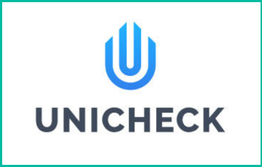
So far, it’s the first and only plagiarism checker available for Google Classroom users.
Teachers talk about convenience
According to the feedback shared with Unicheck, the main feature that teachers liked the most was the convenience. Each report contains concise data about each checked assignment displaying the name of the sender, a percentage of potential plagiarism found and a link to a full report.
It’s possible to choose when to receive reports. Thus, Unicheck’s search findings may be sent either one by one or upon the arrival of a due date (to avoid spamming educators).
Even if the student failed to submit an assignment in time, the report will still be generated and emailed to the teacher.
Integration peculiarities
Integrating Unicheck and Google Classroom is quick. The school administrator simply needs to register a corporate account at unicheck.com and select the LMS to be tied with Unicheck. When done, a few more adjustments may be introduced. They include tuning up the system settings to the school or collegiate needs. Who should receive these reports and when they should be generated.
As soon as the integration is complete, the checker will automatically process all of the new submissions.
Expectations from the workflow
The integration makes teacher-student workflow faster and easier. As soon as the report with checked assignments data is delivered to teachers, they can share it with their students by copying a link or downloading it in PDF for further use.
Similarity, if the rate is low, the teacher can proceed to the assignment evaluation. If it’s unacceptable, the teacher can choose to view a more detailed report with the highlighted unoriginal text areas, citations and references. Report navigation takes only seconds.
About
Unicheck (previously known as Unplag) was designed by the team of talented computer scientists and developers at P1:K, the company developing high-end technologies for education and other fields. Currently, P1:K is working on several products, each utilizing natural language processing and machine learning, with Unicheck being the pinnacle product. Founded in 2014, Unicheck is now being used in 400 educational institutions from over 30 countries across the globe.












